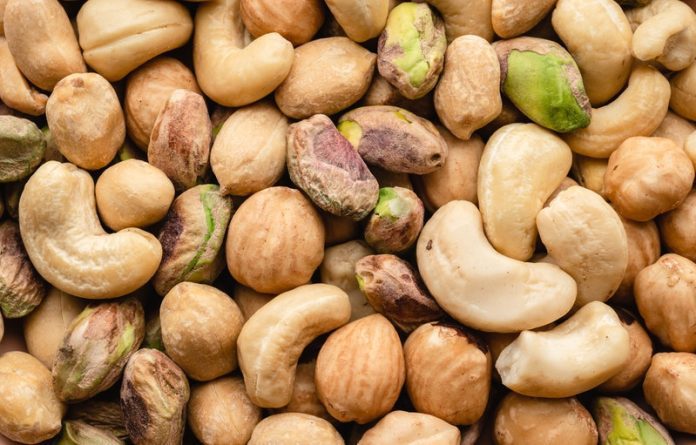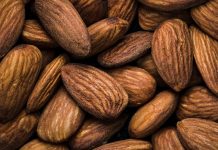
Scientists from Harvard University found that eating more nuts may help lower heart disease risk.
Heart disease is a catch-all phrase for a variety of conditions that affect the heart’s structure and how it works.
Coronary heart disease is a type of heart disease where the arteries of the heart cannot deliver enough oxygen-rich blood to the heart. It is the leading cause of death in the United States.
A stroke, also known as a transient ischemic attack or cerebrovascular accident, happens when blood flow to the brain is blocked. This prevents the brain from getting oxygen and nutrients from the blood.
Without oxygen and nutrients, brain cells begin to die within minutes. Sudden bleeding in the brain can also cause a stroke if it damages brain cells.
Nuts are good sources of protein, healthy fats, fibers, vitamins, and minerals. They regulate body weight as their fats are not fully absorbed, they regulate food intake and help burn energy.
Nuts contain unsaturated fats and other nutrients that provide protective effects against heart disease.
In the current study, researchers aim to examine the link between eating nuts and the risk of heart disease and stroke in U.S. men and women.
They analyzed data from 34,103 men from the Health Professionals Follow-Up Study and 77,815 women from the Nurses’ Health Study, and 80,737 women from the Nurses’ Health Study II.
The team also examined nut consumption in these people every 4 years using food frequency questionnaires.
The researchers found that every 0.5 serving/day increase in nut consumption was linked to a lower risk of coronary artery disease and stroke.
Compared with people who did not eat nuts, those who had higher consumption of nuts (by more than 0.5 servings/day) had a lower risk of heart disease and stroke.
On the other hand, people who decreased nut consumption by ≥ 0.50 servings/day had a higher risk of developing heart disease and stroke when compared with people who maintained their nut intake.
The team also found that increased consumption of nuts and specific types of nuts (e.g., walnuts, other tree nuts, and peanuts) was linked to a lower risk of heart disease.
Based on these findings, they concluded that eating nuts may help prevent heart disease in U.S. men and women.
The research is published in the Journal of the American Heart Association and was conducted by Xiaoran Liu et al.
Copyright © 2022 Scientific Diet. All rights reserved.








